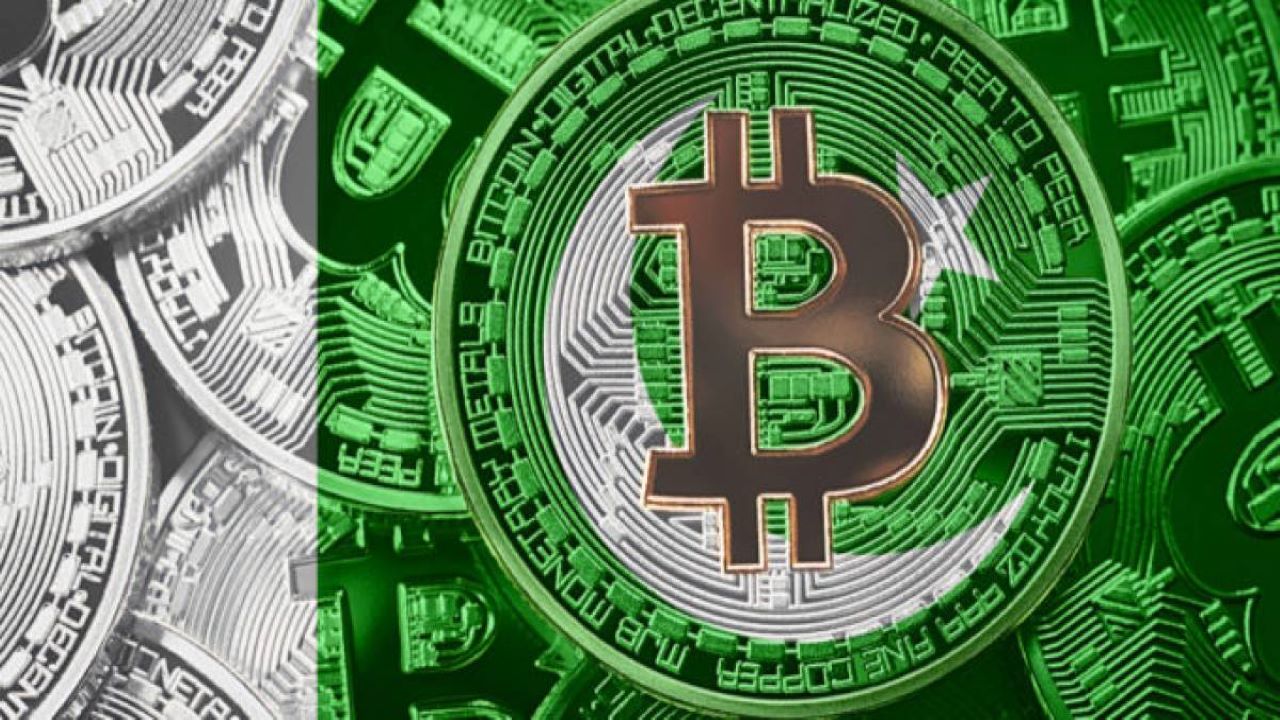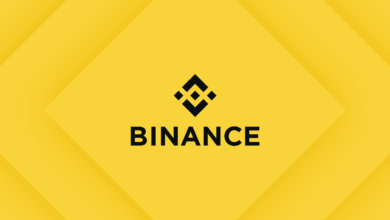Global Players Call on Pakistan’s Govt to Regularize Crypto Market

Crypto Assets are digital assets that provide a medium of exchange for financial transactions using cryptographic techniques. Crypto assets include digital currencies, utility coins, and security token. Currently, there is occasional cryptocurrency trading with an estimated yearly turnover of roughly $20 billion.
RAIN, the first registered crypto asset company, requested that the government tax crypto assets and define applicable legislation, according to one of the leading worldwide participants.
Industry executives said on Tuesday that a 15% tax on cryptocurrency trading could bring in at least $90 million (about Rs19 billion) per year if strict restrictions are implemented.
A digital or virtual currency is referred to as a cryptocurrency. To safeguard financial transactions, manufacture new units, and verify asset transfers, the money is encrypted (secured) using cryptography. Many cryptocurrencies, unlike fiat currency and central banking systems, are decentralized systems based on blockchain technology.
Here is a detailed FAQ related to CryptoAsset market that you should know:
- There is no doubt about the fact that the crypto market is one of the most lucrative investments around the world today. However, nations around the world are struggling to regularize the segment. In your opinion, what are the challenges with creating guidelines for this market?
a. The main local issues are capacity building and understanding of crypto assets. The difficulty is to demonstrate to regulators that establishing a regulatory framework improves opportunities for income generation, socioeconomic growth, and tax revenue support, among other benefits that emerging markets are already receiving from regularization.
b. For the most part, countries are benefiting from the lessons learned by other authorities that have already made steps to regulate the industry.
2. The number of investors and the investment values has gone up significantly in Pakistan. How do you think regularizing this market in the country will benefit the economy?
We expect Rain’s investment to result in the creation of adjacent industries, empowered entrepreneurs, new skill requirements developed through universities, and the establishment of specialized education centers, all of which are expected to contribute to a beneficial rise in economic activity through the creation of jobs and wealth, as seen in our other markets.
3. What are the challenges that you foresee in creating lawful guidelines for the crypto market in Pakistan specifically?
a. The most difficult challenge is regulators’ early capacity building. Crypto is a new field, and without the necessary due diligence and technical help from organizations like RAIN, any regulator anywhere will struggle to grasp new technology rapidly.
b. Additionally, the rapid adoption of cryptocurrency by consumers in Pakistan and around the world has compelled regulators to catch up. This is not an uncommon occurrence, as technology usually comes first, followed by legislation. The question in Pakistan is how rapidly the law can catch up to the market’s embrace of cryptocurrency – Pakistan ranks third or fourth in the world, and usage is projected to skyrocket.
4. The State Bank and other relevant authorities are currently of the opinion that a threat with legalizing crypto in Pakistan will pave the way for unchecked money laundering and terror financing. To what extent do you think this concern is valid and what are your suggestions on tackling this issue?
When other markets are regulated, we see the exact opposite result. Regulations impose compliance with criteria like KYC and AML, resulting in a level of transparency that limits illegal operations like terrorist financing and money laundering.
5. What is the value and the application process of Blockchain in Pakistan?
i. International Payments: Blockchain allows you to generate a tamper-proof trail of sensitive activities in a secure and efficient manner. It’s ideal for international payments and money transfers because of this. Banco Santander, for example, established the first blockchain-based money transfer service in April 2018. The service, dubbed “Santander One Pay FX,” makes international money transfers same-day or next-day using Ripple’XCurrent.
Santander, as a significant commercial bank, has a huge number of retail customers who would benefit from more efficient and cost-effective payments, particularly in the area of foreign transfers.
ii. Capital Markets: Blockchain-based technologies could also help to strengthen capital markets. According to a McKinsey analysis, blockchain systems provide capital markets a number of advantages, including: Clearing and settlement times are reduced. Axoni recently announced the development of a distributed ledger network to manage stock swap transactions, which would allow both sides of an equity swap to be synced throughout their lifecycle and communicate changes in real time.
iii. Trade Finance: Traditional trade finance methods have been a major source of frustration for firms because the lengthy processes frequently disrupt operations and make liquidity difficult to manage. When communicating information – such as place of origin and product characteristics – cross-border trading entails a lot of variables, and transactions require a lot of paperwork.
iv. Regulatory Compliance and Audit: Blockchain’s incredibly secure nature makes it particularly beneficial for accounting and auditing, as it reduces the risk of human error and protects the integrity of records. Furthermore, no one, including the account owners, can change the account records once they are locked in using blockchain technology.
v. Anti-Money Laundering: The encryption that is so important to blockchain makes it extremely useful in combatting money laundering. The underlying technology facilitates “Know Your Customer (KYC),” which is the process by which a company identifies and validates the identity of its customers.
6. What are the benefits that the government and the economy can reap from the legalization of crypto assets?
On January 7, 2022, national media claimed that the Federal Investigation Agency (FIA) had discovered an online fraud of $100 million (17.7 billion PKR) utilizing cryptocurrencies, the result of unregulated operators trading in Pakistan. The outflow of capital flight has resulted in enormous losses to the exchequer and, in tandem, the public has been cheated due to these activities taking place outside of a regulatory framework.
Analyst estimates put the actual trade volume of cryptocurrency in Pakistan at 18.6 USD billion (3.31 PKR trillion) as of October 2021 (appendix 1), presumably offshore and currently resident in crypto-exchanges outside of Pakistan. While fraud is not a reflection of the sector, it is a foregone conclusion in the absence of controls.
7. It was said that Bitcoin is the go-to place for investment as a store of value in times of crises and downward economy. While Gold has gone up in these difficult times as expected, Bitcoin, which was supposed to be the equivalent of Gold in this industry, has not met those expectations. Why is that?
Bitcoin is unique in that it has the potential for huge price increases and is a scarce “monetary good,” outperforming other cryptos, gold, and even government-issued money such as the dollar in many respects. In addition, Bitcoin’s value is predicted to skyrocket in the next five to ten years. Bitcoin’s proponents argue that it serves as a “store of value asset in an increasingly digital environment.” Bitcoin’s advantages as the most secure, decentralized, and solid digital money are unmatched by any other blockchain network or token.
Bitcoin gives benefits over gold as well. He points out that Bitcoin’s supply-inflation rate of 1.8 percent is equal to gold’s yearly supply growth.
To be fair, Bitcoin has several disadvantages. One of them is that its price unpredictability renders it unsuitable for one of money’s primary functions–that of a medium of exchange. Bitcoin mining is also costly to the environment, resulting in carbon emissions comparable to those of small countries.
As more people adopt it, the volatility will die down and its use as a medium of exchange will increase
8. Being deregulated, does the crypto market present a threat to investors and regulatory authorities within Pakistan?
a. While trading crypto assets through illegal means, Pakistanis are prone to scam. Over 8000 crypto currencies are traded on the dark web, with the majority of them being bogus and offering no safety to investors.
b. To buy crypto assets on unregulated exchanges, Pakistani citizens and investors are using Hundi and Hawala (illegal methods of moving PKR outside of Pakistan).
c. Without restrictions, exchanges fail to declare and/or deduct taxes on gains made on the exchange to the Federal Revenue Board or the SBP, resulting in significant losses to the exchequer.
d. Unregulated exchanges allow anyone to list any coin for trading right away. There is no effective regulation, oversight, or monitoring for AML/CFT since there are no risk controls in place.
9. As we saw with the recent crash of the crypto market, what will be the impact on future trust amongst investor?
It will recover, just like any other market. It has previously rallied back, and we are already witnessing signs of a restoration to regular trading conditions, with Bitcoin is surging back above $30,000, a gain of nearly 9.3%.
10. What are the prospects of regulating crypto in Pakistan?
It’s important to remember that crypto is here to stay, and we expect the SBP to regulate crypto assets and exchanges in the future. Delaying the adoption of crypto assets, like delaying the adoption of credit cards and digital banking, will keep Pakistanis out of a global financial network that is rapidly adopting crypto assets as a means of exchange.
11. Different countries, including India, have now taxed crypto assets in their respective countries. Do you see this happening here in Pakistan and what will be the pros and cons of such a decision?
i. Financial Inclusion: In emerging nations, the unbanked population represents a great opportunity to strengthen financial institutions. Around 100 million Pakistanis are unbanked, accounting for around 53% of the population. Around 80% of those without bank accounts are women. Regulating cryptocurrency in the same way that India does may be a huge win.
Uniform KYC requirements: These apply to all users and exchanges, safeguarding citizen safety and giving the government clear visibility into financial flows. Through KYC and taxes, bring a broader client base into the formal economy.
iii. Taxation: Tax collection will be improved and bolstered. A larger tax base on a previously untaxed market activity. When you consider the size of the market, there’s still a lot of room for growth.
iv. Security: Clarifies surveillance, legislation, and criminalization of suspicious or illegal behavior. Clearly defined body guidelines Retail and institutional investors will benefit.
v. Remittances benefit: Restructure remittances worth $29.3 billion in 2020/2021, and numerous costs can be avoided. The UAE and Saudi Arabia accounted for almost $7 billion in remittances.
vi. Cashless society: Crypto adoption may have an impact on other areas of the FinTech business that are working to digitize payments.
vii. Foreign Investment: Indian market players have taken advantage of this. Clear regulatory frameworks boost investor confidence and generate income from sectors where regulation is still embryonic and uncertain.
PTA Taxes Portal
Find PTA Taxes on All Phones on a Single Page using the PhoneWorld PTA Taxes Portal
Explore NowFollow us on Google News!






